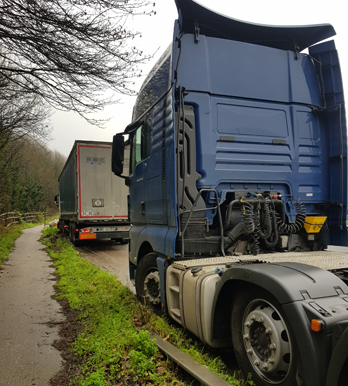Businesses trading with the European Union could yet see the kind of chaos and delays that failed to materialise in early January after Brexit, an online event heard, hosted by business group Resilience First and risk consultancy Control Risks. The event was told that businesses have yet to feel the full impact of the UK leaving the EU and should not be lulled into a false sense of security.
They said that the raft of new rules, regulations and paperwork could be storing up a second and more difficult wave of problems for those trading in both goods and services. This included the new systems and processes creating “a world of opportunity” for organised crime.
To recap; the UK left the EU on December 31, with trade now governed by a cooperation agreement stretching to over 1,200 pages. Complications caused by new rules have hit some sectors, such as the fishing, but the widespread disruption some predicted did not happen.
However, Alexandra Kellert, analyst at Control Risks, told the event she had major concerns that the impact on businesses had been delayed, not avoided.
“Brexit is not an event – not one single incident – it’s very much a process that’s ongoing and we haven’t seen the full impact yet on supply chains,” she said. “The pandemic has been the main priority for many companies and that has suppressed activity.
“But we are now starting to see delays as more and more goods get moving. The other problem is logistics companies are starting to look at the new paperwork and asking if all the forms, checks and costs are really worth it and whether they should bother to keep moving goods. That’s a major concern.”
Companies selling services – which make up about 80pc of value of the British economy – could face similar disruption, such as around the movement of crucial data to and from the EU, according to Emma Shipp, at law firm Russell-Cooke. This data could include a wide raft of information, from customer details, to HR, payroll and pensions information, and even IT systems data, depended on where servers are based.
Emma Shipp said: “Luckily at the moment there is a four-month bridge, so we are still in a transition period. After that, if the EU data regulator classifies our rules as ‘adequate’ then we can continue to transfer data, but there’s no guarantee of that.”
Emma said officials had privately told her firms should “hope for the best but plan for the worst” and warned that even if ‘adequacy’ status was granted it could easily be taken away if the UK changed its rules.
The new systems and processes also pose dangers to firms that are very different to bureaucratic difficulties. John Vine CBE, who advises private companies, governments and international institutions on policing, border security and immigration, spoke of ‘a world of opportunity for organised crime’. The former career police officer said: “There will be organised crime groups testing routes and procedures, as we speak, to find vulnerabilities.”
He said new rules and procedures offered criminals the chance to profit from fraudulent and counterfeit documentation. Meanwhile, queues of lorries or vehicles moving between ports and new customs search centres, offered greater opportunities for gangs to bribe drivers and to intercept them en route, stealing goods or removing contraband – including people.
“The interception of loads in transit has become a new crime trend. We saw recently a lorry load of computer products that was intercepted on the motorway while the lorry was actually moving at speed.”
He added that the solution to these problems would be found in the better use of technology and modelling, to ensure staff were deployed where they were most effective.
Photo by Mark Rowe; some of the hundreds of lorries parked on Kent lay-bys in the days before Christmas, due to delays in being allowed to cross to the Continent.
A recording of the event – What Brexit means for business – the outstanding questions – can be accessed on Youtube.










